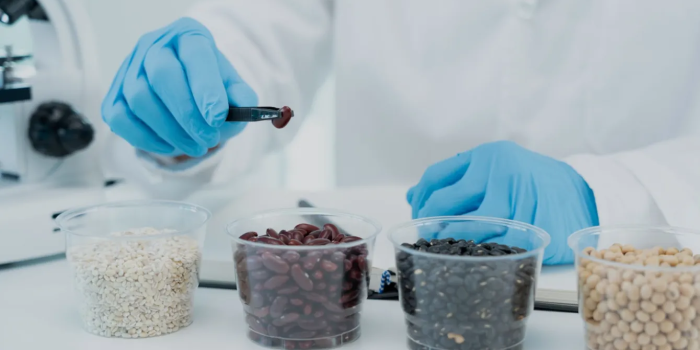Green might be interpreted in various ways as a potential solution for sustainable, plant-based protein. According to a recent study, creative research may be the key to creating plant-based proteins that feel similar to meat and are also ecologically beneficial.
Researchers from the University of Bristol, University College London, Friedrich-Schiller-Universität Jena, University of Copenhagen, and other institutions have shown that cyanobacteria, or blue-green algae, can act as hosts for a novel protein that self-organizes into nanofibers.

“Cyanobacteria can produce a protein that they don’t naturally produce. The formation of the protein in fibrous strands resembling flesh fibers is very interesting about this situation.” University of Copenhagen Professor Poul Erik Jensen stated.
While certain blue-green algae strains pose risks to human health and ecosystems, many of them are benign and are currently utilized in a wide range of supplements and cosmetic products. Researchers are also looking at their potential as a biofuel source. One of the algae’s primary benefits is its ability to thrive on little land and with few resources—it just requires sunshine, water, and atmospheric CO2 to exist.
Jensen highlighted the nutritional benefits of cyanobacteria, noting that their high protein and fatty acid content is comparable to that of meat. Improved meat alternatives might encourage more people to reduce their meat consumption, which would mitigate the detrimental environmental consequences of animal husbandry, which accounts for a sizable portion of global greenhouse gas emissions.
According to research, reducing the amount of meat and dairy consumed in favor of plant-based alternatives might significantly reduce the pollution that agriculture causes to contribute to global warming. Reductions of this magnitude in carbon and methane emissions are necessary to guarantee food security and community resilience against climate-related issues.

Other health benefits of a plant-based diet have been connected, including a lower risk of chronic diseases like diabetes and Alzheimer’s. Blue-green algae may help manufacture less processed plant-based meals, meaning these foods would have more nutrients.
Although using blue-green algae to produce protein has intriguing potential, Jensen notes that maximizing the synthesis of protein fiber still requires overcoming metabolic obstacles.
Jensen says, “We won’t reach our goal tomorrow, but I am certain that we can succeed,” despite the obstacles. If so, this is the best method for producing protein.”


